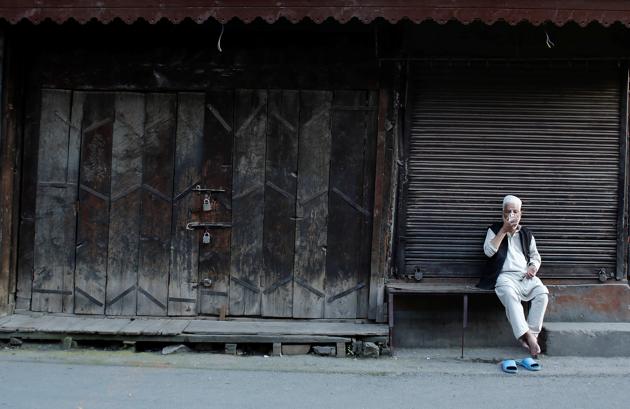Article 370 is gone. It is time to open Kashmir’s political space
Preventing deaths was the State’s first priority. But it now must allow political leaders to operate
There was just one diktat from Delhi to bureaucrats and officials in Srinagar in strategy meetings to contain the aftermath of Article 370 being scrapped: There must be no loss of lives.

On the ground, official after official argues that they have been guided by this priority. The state government’s spokesperson and principal secretary, Rohit Kansal, told me that the administration was especially mindful to not repeat the mistakes it made after the elimination of Hizbul Mujahideen militant, Burhan Wani, in 2016. The most critical of these may have been the decision to hand back Wani’s body to his family and permit them to hold a massive funeral. This would herald a new phase where funeral gatherings literally became recruiting grounds for militant groups. Wani, who argued in favour of a caliphate for Kashmir, and used social media to build a cult following for himself among a younger generation of radicals, was allowed to become an even larger-than-life figure in his death.
As protests erupted on the streets, 37 people were dead within a week. Injuries from pellet gun sprays defined the images out of the city’s hospitals. And the Valley slipped into turmoil for over two months. “Not a single life has been lost so far,” Kansal told me, arguing that the restrictions on movement and communication, while not ideal, was a “fair price to pay”.
The Valley is no stranger to curfew nights and the snapping of phone and Internet lines. We forget that for years mobile phones were, in fact, barred in the state because of security considerations. There is even persuasion in the argument that avoiding violence has to be the first requirement of any administration. So, in the short term, emotionally harrowing though it has been for residents, there may be rational reasons for some of the curbs.
The one that I can’t wrap my head around is the studied silence on when mainstream Kashmir politicians might be released. As also the refusal to reveal precisely how many people may be under arrest. Rumours have swirled around these statistics. And in the absence of any official clarification, numbers have ranged from 700 to 7,000. On condition of anonymity, one official told me that the number of those arrested stands at close to 4,000, and many of the separatist detainees have been shifted out to jails in Uttar Pradesh and Rajasthan.
But my focus here is on the mainstream politicians. The unnecessary information vacuum has only amplified the speculation. On the ground, people say, it’s not just three former chief ministers who have been detained, even village heads have been rounded up. Oddly, other than Shah Faesal, the Indian Administrative Service topper-turned-politician, no one else seems to have challenged the orders that have placed them under arrest. Everyone has been booked under preventive detention. Legally, this seems to be on tenuous ground. By now, a mountain of habeas corpus petitions should have stacked up in the Supreme Court.
That they haven’t may confirm what is being whispered about in Srinagar by officials: Right now no major politician is ready to face the public. Sources confirm that intelligence officials have met both Omar Abdullah and Mehbooba Mufti, and negotiated easing them back into public and political life. But neither has shown much enthusiasm yet, and have asked for more time to respond. What would they say after all? What would be their political call to action? Would they retract their earlier slogans of autonomy and self-rule and ethno-nationalism, and replace them with a campaign for statehood (Jammu and Kashmir is now a Union Territory) and domicile laws? Will they accept this new reality? Do they even have a choice? A former state minister told me he would leave politics altogether because he did not want to be reduced to a “glorified municipal councillor”.
In Srinagar, I visit the party offices of the National Conference and the Peoples Democratic Party to find locks on the gates and not a person in sight. A handful of party workers sit outside in the sun wondering what lies ahead. Their prediction: If mainstream politicians are to survive, they must all unite on one platform.
Article 370 has gone. In the next phase, Delhi needs a political strategy. And that includes allowing some steam to be let off. The Bharatiya Janata Party wants Jammu and Kashmir to be like any other state. That must include the right to protest. So what if Mufti, the Abdullahs, or Sajad Lone, want to lead an agitation against the withdrawal of special status to Kashmir? Why not see this as a sign of normalcy as a confident, self-assured democracy should? It’s time.
Barkha Dutt is an award-winning journalist and author
The views expressed are personal






